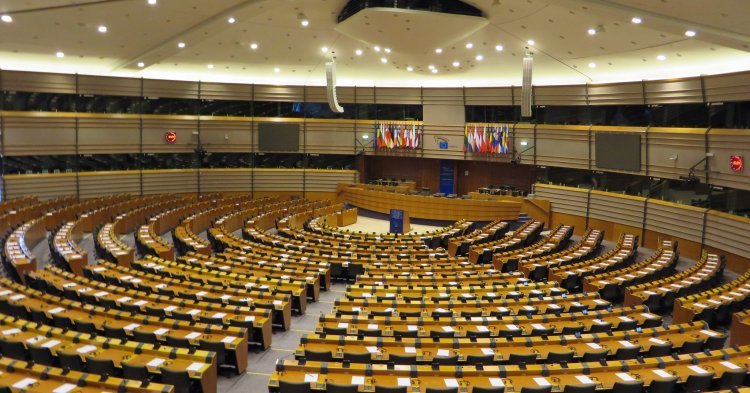The European left is currently facing a severe crisis. Jan Rovny, in an outstanding article called ‘What Happened To Europe’s Left?’ (1), explains that the various political defeats of the social democratic parties in France, Germany, Italy, the Netherlands, the Czech Republic or Greece, draw their origins from the parties’ focus shifting to the new middle classes, letting the new ‘precariat’ fall towards nationalist protectionism.
More globally, their current difficulties are also partly due to their failure to act effectively and produce results when they are in power. As a result, many people have been convinced that Left invariably failed to change the daily life and that it was detached from the real issues.
For Rovny, the political sphere is now crystallising on a new cleavage between cosmopolites and traditionalists, where the Left, especially social democracy, are gradually discarded.
That said, I believe the future of social democracy must find its source in a new European project. Often, in a crisis situation, it is best to return to fundamentals. Historically, socialism and social democracy embody internationalist values. Unlike the extremist parties, the European Construction is a leftist fight. So, the upcoming European elections could be a good opportunity for the European left to reaffirm its values.
Nevertheless, this will only possible by committing on three fundamental guidelines.
1) Refusing the grand coalition and promoting institutional change
The first point for the European Left and the Party of European Socialists (PES) should be to break definitively with the European People’s Party (EPP).
I do not believe the fact that this coalition should be the natural barrier against populism. Let us not forget that the EPP has long supported Viktor Orbán in Hungary and many of this members still support him.
More generally, I am convinced that the ’grand coalition’ contributes to and feeds extremism. Many citizens think that Europe does not have any impact on their daily life. But, after all, is it not conservatism’s aim to maintain established order? The spectre of the ‘progressive coalition’ supported by certain leaders does not make sense: it reinforces misunderstandings by the citizens and extremism.
We can take the German example. The effectiveness of the ‘grand coalition’ came to an end. The Social Democratic Party of Germany (SPD) is sinking deeper every election and the Christian Democratic Union of Merkel is increasingly weakened. It is understandable, as citizens feel that their vote does not have any influence on the political order and finally vote for extremism.
In a very interesting article(2), Amanda Taub, an American journalist, points out that an agreement between the centre-left and centre-right, which are the “building blocks” of European stability, could quickly collapse, as occurred in France, Belgium, Poland, Italy and elsewhere.
As a result, social democrats and socialists gathered in the PES must finally break with the liberals of the European People’s Party (EPP). It will be the only way for the party to break with the current European status quo and to be audacious in its proposals.
Also, even in case of the defeat, I believe the PES will be better off in the parliamentary opposition than in a commission where its influence is missing.
Furthermore, the conservatives refuse a global reform of the institutions. Now, the European Left must put on the table an institutional reform, promoting a real legislative initiative and an effective supervisory power for the European Parliament. Too often, the Parliament is reduced to be a mere rubber-stamp chamber, while it should control the European Commission.
On the contrary, the European Parliament should obtain budgetary and monetary prerogatives. For instance, it could vote on the Union’s various economics objectives, like deficit marks, inflation and more. Also, the Parliament should obtain the right to inquiry. The citizens should have the possibility of recourse to it: in its manifesto, the European Left should propose to simplify the European Citizens’ Initiative process.
In addition, I believe the legislative power could acquire more legitimacy with a real European election: the establishment of transnational lists should focus on European issues and challenges, and avoid these elections being dominated by national issues.
This measure will be a new democratic guarantee, while many experts point out that ECB has acquired too many important political powers(3)(4).
On the same token, I think it will be interesting to ensure a strong role to the European Committee of Regions and the Economic and Social Committee, to promote a European social dialogue.
To finish, the European Left should push to impose once and for all a European budget, financed by a more efficient taxation and oriented toward investments and regional development.
2) Imposing a real social justice
In a recent book from Stephanie Mudge(5), I read that the parties of the left have given up their duty to protect the poorest people, paving the way for extremist parties. If the sentence is very harsh, it is undeniable that leftist politicians have to take it seriously.
The Left must re-examine its position on inequalities and social justice. The notions of merit and ‘fair inequalities’ are increasingly irrelevant. Ed Miliband, former leader of Labour in the UK, precisely questioned this notion of inequality(6), pointing out the necessity of improving the redistribution mechanisms and limiting the great disparity of wealth.
However, social democracy precisely can break this liberal-capitalist cleavage: traditionally it always aimed to impose social justice and a strong redistribution into an open market. I believe the European Left should return to this simple principle.
To this end, the European Left should propose a common fiscal reform. I strongly believe that the European states must harmonise their taxes and define common rates, particularly the corporate taxes.
This policy should have two advantages: limiting the dumping effects, still existing in the common market and which are big problems for the capitalist system, but also taxing more efficiently the global companies.
Indeed, for years, we have seen the rise in power of many big companies, particularly in the digital sector (the famous FAANGs) whose activities naturally are more difficult to locate and thus tax correctly. As a result, in the spirit of social justice and financial regulation, we should tax these firms at the European level, according to their number of users in each country. I am convinced that it will be the European Union which would be the ablest to impose this taxation. Gaël Giraud, a French economist, defends this measure in a famous book(7).
In my view, it will be a great policy which will give a strong meaning to the European level. In the same spirit, this common taxation will be a good tool and the first step to limit the obscene profits of the European football sector, for instance.
The benefits of this new European tax should supplement the European Social Fund and the Cohesion Fund to foster the construction of the common European social model.
More generally, the public holders should reinvent our redistributive system in order to limit inequalities and uplift classes with the lowest income. Also, parties of the left in Europe should stand for the removal of tax benefits and the end of family allowance for the richest people.
Obviously, a crucial issue will be the free-trade agreements. The European Union is currently negotiating the TTIP with the United States. While liberals and conservatives want to ratify this agreement without delay, the European Left should above all reaffirm its commitment to a strong European industry with high environmental and social standards.
3) Consolidating European social progress
While the conservative and populist forces gain ground, I believe that a crucial goal for the European Left will be to convince citizens that Europeanisation and more globally internationalisation are not necessarily bad things! In his famous book ‘What Should the Left Propose’ (8), Roberto Unger has a fine expression: For him, ’’the question should not be ’how much globalization?’ but rather ’what manner of globalization?’’’
Also, we must give a real meaning to the European project. Facing growing populism, I believe it is an urgent necessity. Indeed, if the European Union has achieved its main goal, creating and maintaining peace, it must move up toward a new objective: creating a common social model, based on solidarity and common identity. It will be the prerequisite for a Europe which can change people’s life and ensures solidarity.
Indeed, the European level is the appropriate level to impose common social measures. Europe has enabled harmonised common values and the creation of a common market. Now, the European Union should take on the task of the social harmonisation.
Tomorrow, to face China, India, Russia, but also global companies, we will need collective action. Without Europe, there will be no ecological transition, no fight against tax evasion, no investment plan…
While the source of tension increases every day around the world, the EU should clearly reaffirm very strong positions about environmental and social issues. And the European Left justly has many advantages which can be put forward.
First, its ecologically minded ideology. Today it is not possible to be on the left without being an ecologist. It should be noted that poorest people are the first to be impacted by climate change and pollution (Zmirou et al, 2015 (9)).
The concept of social-ecology is interesting because it establishes that ecological policy must be the starting point for all social policies. Facing the effects of global warming and the sanitary scandals, the European Left could propose a European environmental treaty which could represent an ecological counterpart to the Stability and Growth Pact and the Maastricht criteria.
In addition, once and for all, it should impose the ban of endocrine disrupters and a common taxation against the polluting activities.
Secondly, the European Left is the progressive wing. If it should come to power, it must demonstrate that Europe can bring about social progress.
I think of a European strategy on migration, currently non-existent, which could finally resolve the migration crisis. I also think of student and professional mobility which would be as inclusive as possible, establishing new European aid programmes, because mobility opens the doors for all citizens. I think of fundamental rights. European directives limit the working time at 48 hours: this ceiling should be further reduced. Moreover, I believe the States condemned by the ECHR should be financially sanctioned by the European Commission to encourage social progress.
Thanks to this, the European left will impose the European Union as a protecting shield for the citizens and it will be possible to institute a new ‘European Dream’ (Petr Drulak, 2014 (10)) more focused on politics and citizenship.
To conclude, we can remind that historically social democracy represented a strong compromise between the various social classes about a common social project. Let’s remember that this political vision has made the success of the Nordic countries after the Second World War. These days, while this project is becoming inaudible, it is necessary to give it a new meaning.
The European Left has a very important advantage: it remains welded in the Party of European Socialists. It is a crucial tool for rethinking an overarching European project and imagining the future of the Social Democracy, starting with the upcoming European elections.
A current debate is about the nomination of the PES’s Spitzenkandidat. I believe this choice is not the most important: more important will be the future manifesto. Like I modestly outlined, the future of the European Left must do away with the coalition with the EPP and lay out an ambitious political programme.
If the European Left succeeds at proposing ambitious ideas and one day at changing Europe, it will regain power in different European countries. Institutional reforms, social and fiscal harmonisation, ecological ambition, social progress: there are many terms of which the European Left should clearly take ownership in the coming months.


Follow the comments: |
|
